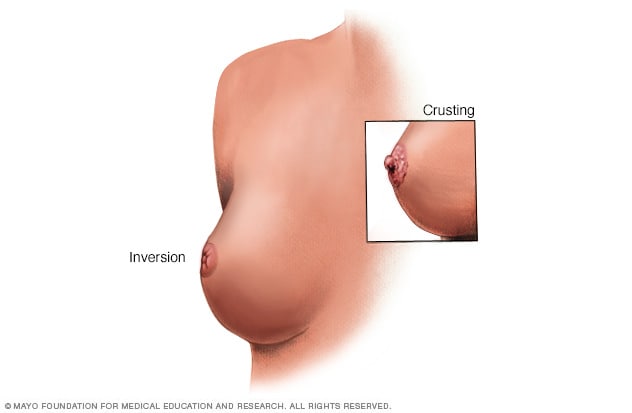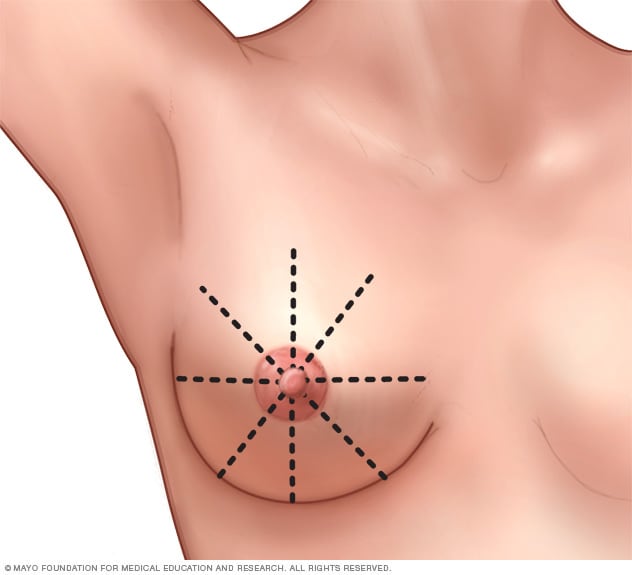CANCER
Cancer is a group of diseases involving abnormal cell growth with the potential to invade or spread to other parts of the body. These contrast with benign tumors, which do not spread to other parts of the body. Possible signs and symptoms include a lump, abnormal bleeding, prolonged cough, unexplained weight loss and a change in bowel movements.While these symptoms may indicate cancer, they may have other causes.Over 100 types of cancers affect humans.Tobacco use is the cause of about 22% of cancer deaths. Another 10% are due to obesity, poor diet, lack of physical activity or excessive drinking of alcohol.
TYPES OF CANCER
Most commonly searched cancer types
- Bladder cancer.
- Breast cancer.
- Colo rectal cancer.
- Kidney cancer.
- Leukemia.
- Lung cancer.
- Non-Hodgkin lymphoma.
- Prostate cancer.
BREAST CANCER
Breast cancer is the most common invasive cancer in women, and the second main cause of cancer death in women, after lung cancer.
Breast cancer is cancer that forms in the cells of the breasts.
After skin cancer, breast cancer is the most common cancer diagnosed in women in the United States. Breast cancer can occur in both men and women, but it's far more common in women.
Symptoms
-
Nipple changes
Signs and symptoms of breast cancer may include:
- A breast lump or thickening that feels different from the surrounding tissue
- Change in the size, shape or appearance of a breast
- Changes to the skin over the breast, such as dimpling
- A newly inverted nipple
- Peeling, scaling, crusting or flaking of the pigmented area of skin surrounding the nipple (areola) or breast skin
- Redness or pitting of the skin over your breast, like the skin of an orange
Causes
- Doctors know that breast cancer occurs when some breast cells begin to grow abnormally. These cells divide more rapidly than healthy cells do and continue to accumulate, forming a lump or mass. Cells may spread (metastasize) through your breast to your lymph nodes or to other parts of your body.Breast cancer most often begins with cells in the milk-producing ducts (invasive ductal carcinoma). Breast cancer may also begin in the glandular tissue called lobules (invasive lobular carcinoma) or in other cells or tissue within the breast.
Breast cancer usually starts in the inner lining of milk ducts or the lobules that supply them with milk. From there, it can spread to other parts of the body.
Risk Factors
The exact cause remains unclear, but some risk factors make it more likely. Some of these are preventable.
1.Genetics
If a close relative has or has had, breast cancer, the risk is higher.
Women who carry the BRCA1 and BRCA2 genes have a higher risk of developing breast cancer, ovarian cancer or both. These genes can be inherited. TP53 is another gene that is linked to a greater breast cancer risk..
2. Dense breast tissue
Breast cancer is more likely to develop in higher density breast tissue.
3. Estrogen exposure and breast-feeding
Being exposed to estrogen for a longer period appears to increase the risk of breast cancer.
4. Radiation exposure
Undergoing radiation treatment for a cancer that is not breast cancer increases the risk of breast cancer later in life.
5. Hormone treatments
The use of hormone replacement therapy (HRT) and oral birth control pills have been linked to breast cancer, due to increased levels of estrogen.
This could be due to due to the implants masking cancer during screening, or because the implants bring about changes in breast tissue. More research is needed.
Prevention
-
Breast self-exam
Making changes in your daily life may help reduce your risk of breast cancer. Try to:
- Ask your doctor about breast cancer screening. Discuss with your doctor when to begin breast cancer screening exams and tests, such as clinical breast exams and mammograms.
- Become familiar with your breasts through breast self-exam for breast awareness. Women may choose to become familiar with their breasts by occasionally inspecting their breasts during a breast self-exam for breast awareness. If there is a new change, lumps or other unusual signs in your breasts, talk to your doctor promptly.
- Drink alcohol in moderation, if at all. Limit the amount of alcohol you drink to no more than one drink a day, if you choose to drink.
- Choose a healthy diet. Women who eat a Mediterranean diet supplemented with extra-virgin olive oil and mixed nuts may have a reduced risk of breast cancer. The Mediterranean diet focuses mostly on plant-based foods, such as fruits and vegetables, whole grains, legumes, and nuts..
Facts on Breast Cancer:
Breast cancer is the most common cancer among women.Symptoms include a lump or thickening of the breast, and changes to the skin or the nipple.Risk factors can be genetic, but some lifestyle factors, such as alcohol intake, make it more likely to happen..Stage 0: Known as ductal carcinoma in situ (DCIS), the cells are limited to within a duct and have not invaded surrounding tissues.
Stage 1: At the beginning of this stage, the tumor is up to 2 centimeters (cm) across and it has not affected any lymph nodes.
Stage 2: The tumor is 2 cm across and it has started to spread to nearby nodes.
Stage 3: The tumor is up to 5 cm across and it may have spread to some lymph nodes.
Stage 4: The cancer has spread to distant organs, especially the bones, liver, brain, or lungs.
Types
Breast cancer can be:
- Ductal carcinoma: This begins in the milk duct and is the most common type.
- Lobular carcinoma: This starts in the lobules.
Imaging tests
A mammogram is a type of x-ray commonly used for initial breast cancer screening. It produces images that can help detect any lumps or abnormalities.
An ultrasound scan can help differentiate between a solid mass or a fluid-filled cyst.
An MRI scan involves injecting a dye into the patient, so find out how far the cancer has spread.
Biopsy
A sample of tissue is surgically removed for laboratory analysis. This can show whether the cells are cancerous, and, if so, which type of cancer it is, including whether or not the cancer is hormone-sensitive.
Diagnosis also involves staging the cancer, to establish:
- the size of a tumor
- how far it has spread
- whether it is invasive or non-invasive
- whether it has metastasized, or spread to other parts of the body
- Treatment will depend on:
- the type of breast cancer
- the stage of the cancer
- sensitivity to hormones
- the patient's age, overall health, and preferences
The main options include:- radiation therapy
- surgery
- biological therapy, or targeted drug therapy
- hormone therapy
- chemotherapy
Factors affecting the choice will include the stage of the cancer, other medical conditions, and individual preference.Radiation therapy
Controlled doses of radiation are targeted at the tumor to destroy the cancer cells. Used from around a month after surgery, along with chemotherapy, it can kill any remaining cancer cells.Adverse effects include fatigue, lymphedema, darkening of the breast skin, and irritation of the breast skin.Chemotherapy
Medications known as cytotoxic drugs may be used to kill cancer cells, if there is a high risk of recurrence or spread. This is called adjuvant chemotherapy.If the tumor is large, chemotherapy may be administered before surgery to shrink the tumor and make its removal easier. This is called neo-adjuvant chemotherapy.Adverse effects include nausea, vomiting, loss of appetite, fatigue, sore mouth, hair loss, and a slightly higher susceptibility to infections. Medications can help control many of these.Prevention
There is no sure way to prevent breast cancer, but some lifestyle decisions can significantly reduce the risk of breast and other types of cancer.These include:- avoiding excess alcohol consumption
- following a healthy diet with plenty of fresh fruit and vegetables
- getting enough exercise
- maintaining a healthy body mass index (BMI)
- MADE BY :- AMAN KUMAR PAL
- GROUP:-'16-A'




Am Richard, I am here to testify about a great herbalist man who cured my wife of breast cancer. His name is Dr Imoloa. My wife went through this pain for 3 years, i almost spent all i had, until i saw some testimonies online on how Dr. Imoloa cure them from their diseases, immediately i contacted him through. then he told me the necessary things to do before he will send the herbal medicine. Wish he did through DHL courier service, And he instructed us on how to apply or drink the medicine for good two weeks. and to greatest surprise before the upper third week my wife was relief from all the pains, Believe me, that was how my wife was cured from breast cancer by this great man. He also have powerful herbal medicine to cure diseases like: Alzheimer's disease, parkinson's disease, vaginal cancer, epilepsy Anxiety Disorders, Autoimmune Disease, Back Pain, Back Sprain, Bipolar Disorder, Brain Tumor, Malignant, Bruxism, Bulimia, Cervical Disc Disease, Cardiovascular Disease, Neoplasms , chronic respiratory disease, mental and behavioral disorder, Cystic Fibrosis, Hypertension, Diabetes, Asthma, Autoimmune inflammatory media arthritis ed. chronic kidney disease, inflammatory joint disease, impotence, alcohol spectrum feta, dysthymic disorder, eczema, tuberculosis, chronic fatigue syndrome, constipation, inflammatory bowel disease, lupus disease, mouth ulcer, mouth cancer, body pain, fever, hepatitis ABC, syphilis, diarrhea, HIV / AIDS, Huntington's disease, back acne, chronic kidney failure, addison's disease, chronic pain, Crohn's pain, cystic fibrosis, fibromyalgia, inflammatory Bowel disease, fungal nail disease, Lyme disease, Celia disease, Lymphoma, Major depression, Malignant melanoma, Mania, Melorheostosis, Meniere's disease, Mucopolysaccharidosis, Multiple sclerosis, Muscular dystrophy, Rheumatoid arthritis. You can reach him Email Via drimolaherbalmademedicine@gmail.com / whatsapp +2347081986098
ReplyDeleteGood day to all am so happy sharing this great testimony on here, I was diagnose of Stage IV colon cancer.i was checking for solution in the internet then miraculously i came Across Dr Itua herbal center the powerful herbal doctor that Cure Numerous Diseases such as-Thyroid Cancer,Uterine cancer,Fibroid,Angiopathy, Ataxia,Arthritis,Amyotrophic Lateral Sclerosis,Brain Tumor,Fibromyalgia,Fluoroquinolone ToxicityBladder cancer,Brain cancer,Hiv,Herpes,Esophageal cancer,Gallbladder cancer,Gestational trophoblastic disease,Head and neck cancer,Hodgkin lymphoma
ReplyDeleteIntestinal cancer,Kidney cancer,Hpv,Lung cancer,Melanoma,Mesothelioma,Multiple myeloma,Neuroendocrine tumors
Non-Hodgkin lymphoma,Oral cancer,Ovarian cancer,Sinus cancer,Hepatitis A,B/C,Skin cancer,Soft tissue sarcoma,Pancreatic Cancer,Spinal cancer,Stomach cancer,Vaginal cancer,Vulvar cancer,
Testicular cancer,Tach Diseases,Leukemia,Liver cancer,Throat cancer,
Syndrome Fibrodysplasia Ossificans ProgresS sclerosis,Alzheimer's disease,Chronic Diarrhea,Copd,Parkinson,Als,Adrenocortical carcinoma Infectious mononucleosis. ,I contacted him based on the testimonies I?m seeing about him on the internet, I was cured too by him, kindly contact him today through his email he can help you. drituaherbalcenter@gmail.com web and his herbal medicines will set you free from any human diseases,all thank you Dr Itua herbal center for your kind help in my life. His Mobile number Whatsapp.+2348149277967.